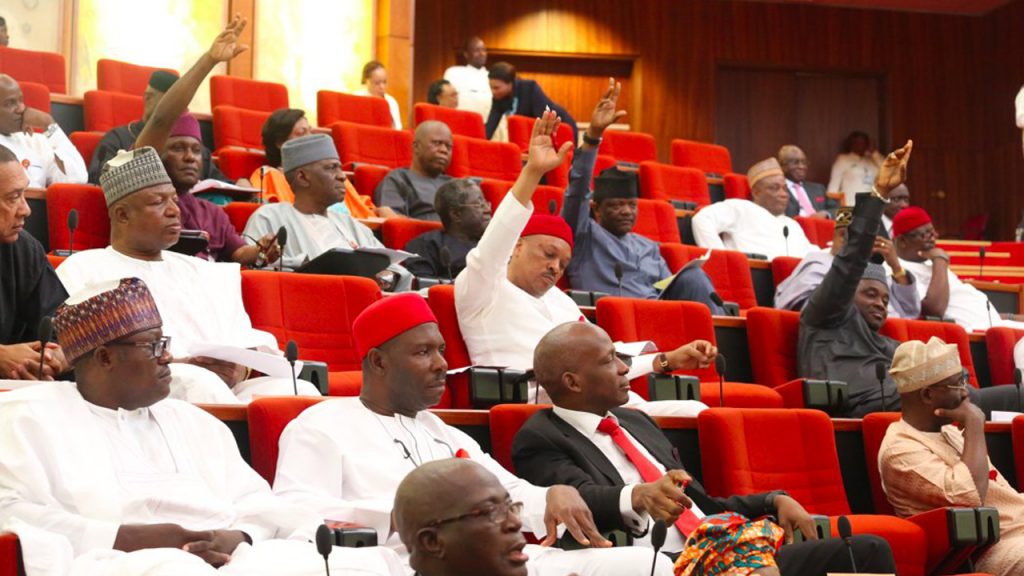The Senate Tuesday gave its Committee on Agriculture two weeks to investigate and report to the plenary the large-scale importation of maize into the Nigerian market.
Disturbed that maize from Ukraine, Brazil and South Africa has flooded Nigerian market, the Senate began a holistic investigation to ascertaining how and why such importation was allowed after more than 41 items were banned from getting foreign exchange.
The resolution of the Senate was sequel to a motion by Senator Adamu Aliero, APC, Kebbi Central and Senators Abdullahi Adamu, APC, Nasarawa West and Andy Uba, APC, Anambra South entitled, Urgent need to investigate the recent importation of maize into Nigeria.
In his motion, Senator Aliero said “The Senate observes that the Nigerian market is currently flooded with imported maize from Ukraine, Brazil and South Africa;
“Notes that imported maize is liable to import duty of only five per cent, and consequently, information available shows that between July and August, more than 10 shiploads of maize have berthed in Lagos and Port-Harcourt ports and more ships are likely to arrive between now and December this year;
“Further notes that Nigerian farmers are seriously put in a disadvantaged position because the landing cost of the imported maize has made it difficult for them to recover their production cost. This invariable means that millions will be out of job next year due to massive importation of maize. The imported and dumped maize sells at much lower prices than the locally grown maize;
“Observes that the beneficiaries of this importation are mostly foreigners whose interest is mainly profiteering at the expense of the Federal Government policy on food security and self-sufficiency which is also geared towards providing employment to the teeming unemployed men and women in our country;
“Further observes that in this era of diversification of our economy, agriculture provides the best complement if not alternative to oil. Maize farming, not maize importation would have been encouraged and improved upon and our scarce foreign exchange conserved, if such importation is targeted at agricultural implements which will be made available to our farmers;
The motion also stated “Aware that at this stage of our economic development coupled with the fact that, we are marginally getting out of recession, promotion of local production that we have comparative advantage should be preferable to importation, no matter how cheap the landing cost of the item;
”Worried that the importation of food items into the country is encouraging unemployment and poverty in Nigeria, as can be perceived by majority of us who are in touch with our constituents that are mostly farmers;
“Aware that as a representative body that is close to the people and conscious of our constitutional oversight ad responsibility to the people and determined to ensure equitable and judicious use of the nation’s sources in accordance with the fundamental objectives and directive principles of state policy.”

